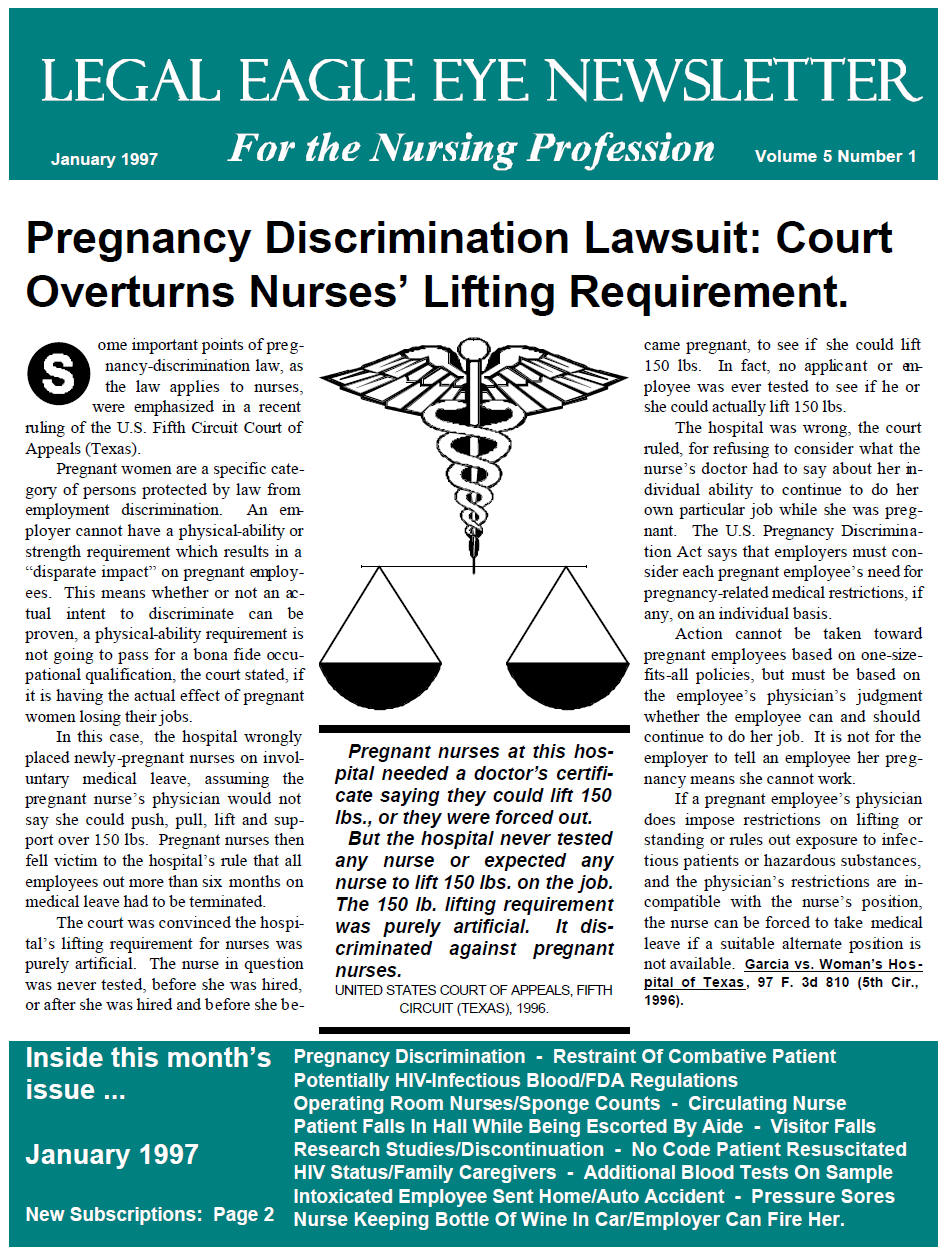
|
Click here for a complimentary copy of the current issue of Legal Eagle Eye Newsletter for the Nursing Profession |

|
Pregnant nurses at this hospital needed a
doctor's certificate saying they could lift 150 lbs., or they were
forced out. |